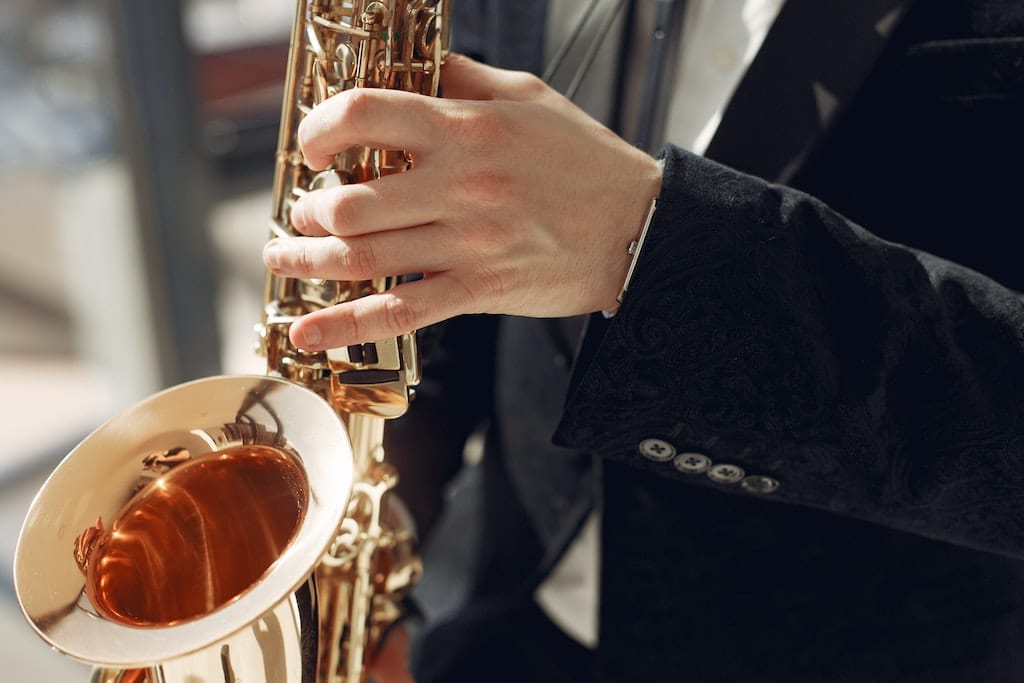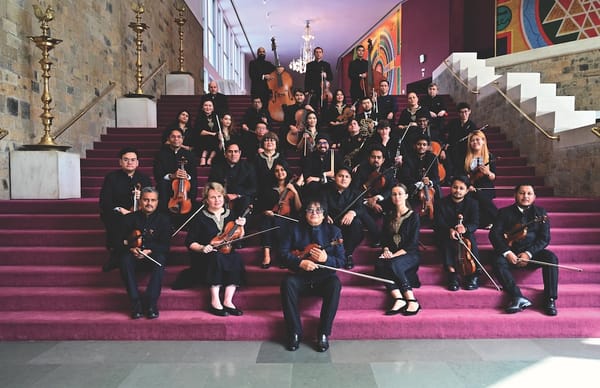From Garage to Gig: Navigating the Music Business for Aspiring Artists

In the vast and ever-evolving landscape of the music industry, aspiring artists often find themselves facing numerous challenges as they strive to transform their musical passion into a successful career. From practicing in cramped garages to gracing the stages of renowned venues, the journey from obscurity to stardom is an exciting but complex path to navigate.
This article aims to provide guidance and insights into the world of the music business, offering aspiring artists a roadmap to follow as they embark on their musical journey. By understanding the key elements of the music industry and adopting a strategic approach, emerging musicians can enhance their chances of making their mark and achieving their artistic dreams.
The Garage: Starting Point for Aspiring Artists
The garage has long held a special place in the hearts of aspiring musicians. It serves as a sanctuary where creativity flourishes and musical ideas come to life. Whether it’s a literal garage, a basement, or any other makeshift space, this humble setting often becomes the birthplace of countless musical dreams.
The garage offers several advantages for aspiring artists. Firstly, it provides a private and secluded environment where musicians can experiment, make mistakes, and refine their skills without the pressure of an audience or the scrutiny of industry professionals. It’s a place where creativity can flow freely, allowing artists to explore their unique style and sound.
Secondly, the garage acts as a rehearsal space for bands to come together, collaborate, and develop a cohesive musical identity. It’s a space where the chemistry between band members is nurtured, and the foundation of a strong musical unit is built. Many legendary bands and artists have attributed their early success to the countless hours spent perfecting their craft in garages.
Importance of honing musical skills and developing a unique sound
While the garage offers a safe haven for musical exploration, it is crucial for aspiring artists to prioritize the development of their musical skills. Whether it’s mastering an instrument, refining vocal techniques, or experimenting with song-writing, honing these skills is essential to stand out in the highly competitive music industry.
With a focus on holistic development, Global Music Institute’s (GMI) 2 year Artist Diploma Program cultivates confident, well-rounded, and highly skilled musicians who are poised for success in the evolving music industry.
In addition to technical proficiency, aspiring artists should strive to develop a unique sound that sets them apart from the crowd. This involves exploring different genres, experimenting with different musical elements, and allowing personal influences to shape their artistic expression. The garage is the perfect place to experiment with different musical styles, instruments, and arrangements, enabling artists to carve out their own sonic identity.
Collaborating with other musicians and forming bands
Collaboration is a powerful tool for aspiring artists, and the garage provides an ideal space for musicians to connect and form bands. Joining forces with like-minded individuals who share a passion for music can lead to new creative possibilities and the development of a strong support network. When forming a band, it’s important to consider factors such as musical compatibility, shared goals, and a mutual commitment to the craft. Collaborating with others brings fresh perspectives, diverse musical influences, and the potential to create a dynamic and compelling sound that resonates with audiences.
Working together in the garage allows band members to refine their musical chemistry, establish their roles within the group, and create a cohesive sound that reflects their collective vision. It also prepares them for the challenges and rewards of performing live and navigating the music industry as a united front.
Collaboration is at the heart GMI’s accelerated 1 Professional Diploma, with students engaging in ensemble performances, group compositions, and interdisciplinary practice. These experiences foster teamwork, creative exploration, and develop valuable networking skills which ultimately prepare them for the stage.
Building a Solid Foundation
In the music industry, crafting a compelling artist brand and image is essential for gaining attention from industry professionals and connecting with audiences. This involves defining elements such as your artist name, logo, visuals, and persona, all of which should align with your music style and genre while reflecting your unique personality and artistic vision. Focus on honing your song-writing skills and building a diverse repertoire of captivating songs to resonate with listeners and leave a lasting impression. Establish a strong online presence through social media and a dedicated artist website to engage with fans and showcase your music and achievements. Lastly, networking within the local music community is crucial for building relationships with fellow musicians, industry professionals, and influencers, which can lead to exciting creative opportunities and career advancements.
Recording and Production
In the modern music landscape, high-quality recordings and production value are crucial for capturing the attention of listeners and industry professionals alike. A well-produced and polished recording can elevate your music, making it more appealing and competitive in the market. Investing in professional recording equipment or booking studio time can significantly enhance the overall quality of your recordings. Work with experienced engineers who understand your artistic vision and can bring out the best in your sound. Remember that every detail counts, from capturing clean instrument tracks to achieving a balanced mix and adding tasteful effects.
Whether you’re a producer or a musician who wants to produce their own sound, the Music Production and Audio Engineering programs at Global Music Institute will empower you to bring your vision alive. Immerse yourself in the world of sound, software and symphony while working in a professional grade studio.
Choosing the right recording studio or DIY recording options
For recording, you have two options: professional studios or a DIY setup. Professional studios offer top-notch facilities and equipment with experienced engineers, providing a distraction-free environment for focused recording. However, they can be costly, so efficient planning is crucial. Alternatively, a DIY recording space offers flexibility and cost-effectiveness with advancements in technology. Invest in quality microphones, audio interfaces, and software for professional-sounding DIY recordings.
Collaborating with producers, engineers, and session musicians
Collaborating with experienced producers, engineers, and session musicians can elevate your recordings to new heights. A skilled producer can bring fresh perspectives, enhance the overall sound, and help you refine your artistic vision. Engineers play a critical role in capturing the best performances and ensuring optimal sound quality. When considering session musicians, seek out professionals who specialize in the instruments and styles that complement your music. Their expertise can add depth and richness to your recordings, enhancing the overall sonic experience.
Communication is key when working with collaborators. Clearly articulate your creative goals and provide reference tracks to ensure everyone is on the same page. Collaboration allows for a collaborative and synergistic approach to recording and can bring out the best in your music.
Understanding the basics of music production and mixing
While it’s not necessary to become a professional music producer or mix engineer, having a basic understanding of these processes can greatly benefit your recordings. Familiarize yourself with the fundamentals of recording techniques, microphone placement, signal processing, and mixing principles. Educational resources, online tutorials, and workshops can provide valuable insights into music production and mixing. Learning how to optimize levels, EQ frequencies, and create an appropriate sonic space can help you communicate your artistic vision more effectively to engineers and producers.
Global Music Institute’s 1 year professional diploma in Music Production & Audio Engineering ensures you have a strong foundation in the necessary skills required to springboard your individual practice as a professional Producer.
Releasing and Promoting Music
In the digital age, music distribution has undergone a transformation, benefiting independent artists with increased opportunities for releasing and promoting their music. While traditional music labels offered advantages like financial support and industry connections, they often required artists to compromise some creative control and earnings. Nowadays, independent distribution platforms, like digital aggregators, have gained popularity, providing artists with the freedom to maintain control and retain more earnings. This DIY approach empowers artists to release music on their terms through platforms like Bandcamp, SoundCloud, and social media. To succeed, artists should develop a comprehensive marketing strategy, including visual content creation, social media advertising, blog features, and collaborations with influencers, photographers, and graphic designers. Leveraging social media, streaming platforms, and music blogs is crucial for gaining exposure and building a fan base.
Booking Gigs and Live Performances
Live performances are integral to the growth and success of aspiring artists. They offer a unique opportunity to connect with fans, showcase your musical skills, and build a dedicated following. Live shows provide a platform to bring your music to life, engage with audiences on a personal level, and leave a lasting impression. Performing live allows you to test your material, refine your stage presence, and receive immediate feedback from the audience. It’s also an avenue to expand your network, connect with industry professionals, and potentially secure future opportunities.
Building a live performance repertoire
Before booking gigs, it’s crucial to build a strong live performance repertoire. Select songs that showcase your musical style, captivate audiences, and maintain a cohesive flow throughout your set. Consider the dynamics, energy, and audience engagement of each song when crafting your live performance line-up. Incorporate both original compositions and well-known cover songs, putting your unique spin on the covers to showcase your artistic identity. Aim for a balanced mix of crowd favourites and lesser-known tracks that demonstrate your versatility and originality.
Finding and booking gigs
Finding and booking gigs can be a challenging but rewarding process. Here are some strategies to help you secure live performance opportunities:
- Research and connect with local venues: Identify venues in your area that cater to your genre or target audience. Research their booking process and contact the venue’s booking manager or event coordinator. Introduce yourself, share your music, and express your interest in performing at their venue.
- Collaborate with other artists: Reach out to other local musicians or bands and propose joint shows or opening act opportunities. Collaborations can help expand your audience and open doors to new venues and performance opportunities.
- Attend open mic nights and showcase events: Open mic nights provide a platform to showcase your talent, network with other artists, and potentially catch the attention of venue owners or event organizers. Participate regularly and make connections within the local music community.
- Utilize online gig platforms: Explore online gig platforms that connect artists with venues and event organizers. Websites and apps dedicated to booking gigs, can help you find and secure performance opportunities.
Preparing for live performances
Preparing for live performances involves more than rehearsing your songs. Consider the following aspects to ensure a successful and impactful live show:
- Stage presence and audience engagement: Work on your stage presence, connecting with the audience through eye contact, movement, and interaction. Engage the crowd by encouraging sing-alongs, participation, or moments of interaction during your performance.
- Soundcheck and technical requirements: Arrive early for soundcheck to ensure optimal sound quality and address any technical issues. Communicate your technical requirements to the venue’s sound engineer or production team in advance.
- Visual aesthetics and branding: Pay attention to your visual presentation on stage. Consider how your attire, stage design, lighting, and visual effects align with your artist brand and enhance the overall live experience.
- Promotion and marketing: Utilize your online platforms and mailing list to promote upcoming live shows. Leverage social media, flyers, and online event listings to spread the word and generate excitement among your fan base.
Financial Considerations and Monetizing Your Music
Navigating the financial aspects of the music industry is crucial for aspiring artists. While pursuing your passion for music, it’s essential to have a solid understanding of the financial landscape and explore avenues to monetize your music effectively. Educate yourself on the various revenue streams in the music industry, such as music sales, streaming royalties, live performances, merchandise sales, licensing, and synchronization opportunities. Familiarize yourself with the standard industry practices and contracts to protect your rights and ensure fair compensation.
Building multiple revenue streams
Relying on a single income stream can be challenging in the music industry. To increase your financial stability, focus on building multiple revenue streams. Here are some avenues to consider:
- Digital music sales and streaming: Distribute your music through online platforms and streaming services, earning royalties from digital sales and streaming plays. Explore different streaming platforms and consider offering exclusive content or special releases to incentivize fans.
- Live performances and touring: Live performances provide opportunities for direct fan engagement and revenue generation. Book gigs, perform at festivals, and consider touring in areas where you have a strong fan base. Develop a captivating live show experience to attract audiences and boost merchandise sales at your performances.
- Merchandise sales: Create merchandise that aligns with your brand and appeals to your fan base. This can include items like t-shirts, posters, vinyl records, CDs, and branded accessories. Sell merchandise at your live shows and through your website or online stores.
- Sync licensing and placements: Explore opportunities to license your music for film, television, commercials, and other media projects.
- Collaborations and features: Collaborating with other artists and participating in features can expand your reach and potentially lead to revenue-sharing opportunities. Explore collaborations with artists in complementary genres or consider guest appearances on other musicians’ tracks.
Developing a budget and financial planning
Creating a budget and practicing effective financial planning is crucial for aspiring artists. Managing your income and expenses ensures that you can invest in your music career, cover essential costs, and save for future projects. Consider the following:
- Track your income and expenses: Keep a detailed record of your income from music sales, performances, and other revenue streams. Similarly, track your expenses related to recording, promotion, equipment, touring, and other music-related costs.
- Set financial goals: Define short-term and long-term financial goals for your music career. This could include saving for equipment upgrades, funding a recording project, or investing in marketing and promotion.
- Seek professional advice: Consider consulting with a financial advisor or accountant who specializes in the music industry. They can provide guidance on tax planning, budgeting, and maximizing your revenue.
- Plan for contingencies: The music industry can be unpredictable, so it’s important to plan for unexpected expenses or income fluctuations. Build an emergency fund to provide a safety net during lean periods or unexpected expenses.
Conclusion
Navigating the music business as an aspiring artist requires a multifaceted approach. From honing your craft and building a strong brand to understanding the industry’s financial landscape and connecting with your audience, each aspect contributes to your overall success. Remember to stay true to your authentic self, persevere through challenges, and seek support from mentors and peers. With dedication, resilience, and continuous learning, you can navigate the music business with confidence and embark on a fulfilling career as a musician.
For a journey that will be uniquely yours, don’t forget to check out Global Music Institute for a guide along the way.





